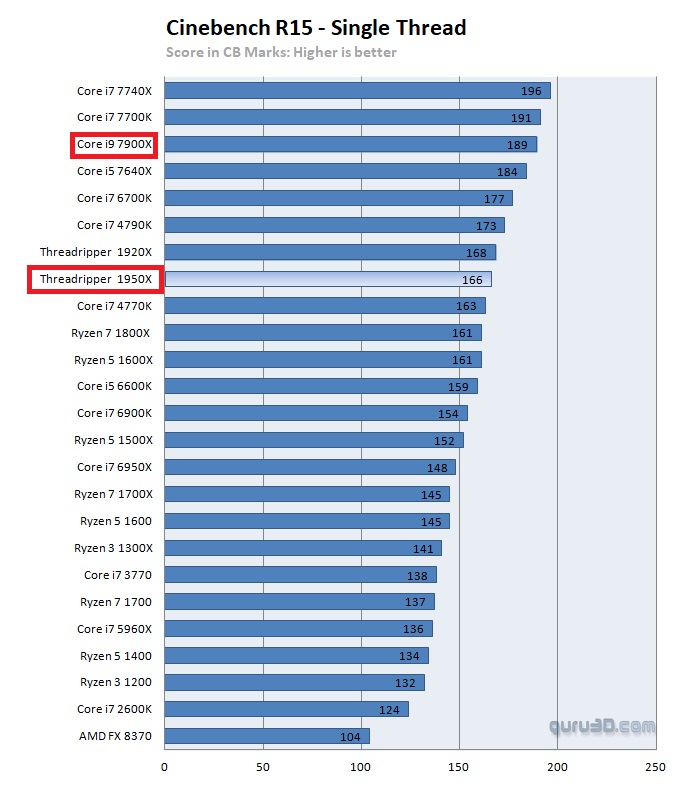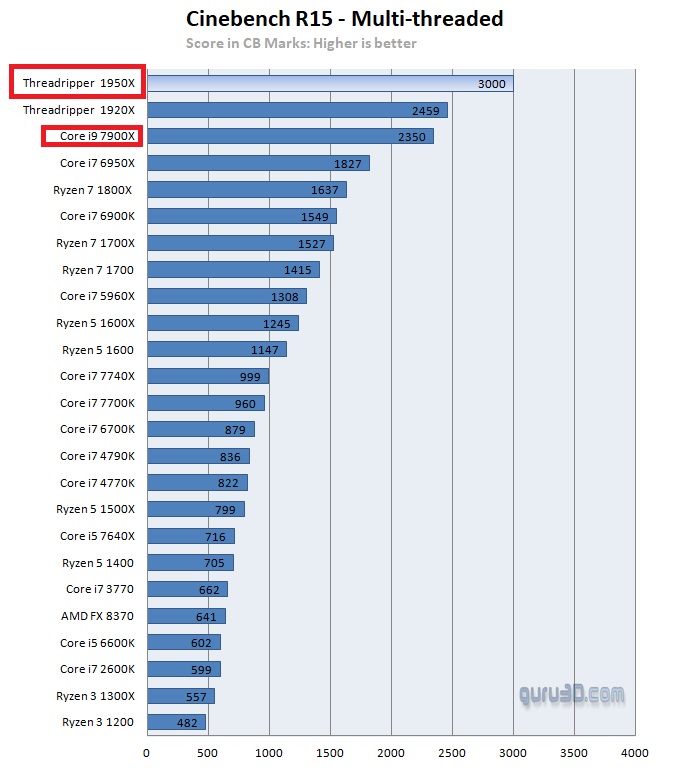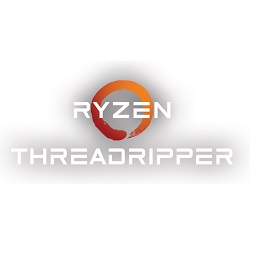Introduction
These are exciting times in the computer world. AMD has recently released its new line of Ryzen and Threadripper CPUs and is finally prodding Intel with some newfound competition. It brings me back to the good-ole-days of 2006 Athlon 64s and Core 2 Duos, CPU manufacturers pushing each other to provide faster, more reliable, and cheaper CPUs for customers. Over the years, AMD has slowly faded into irrelevance in the CPU market as they dealt with pressure on all sides of their business – Intel on the CPU front, Nvidia on the GPU front, and several years of less than ideal management. Focusing on multi-threaded performance instead of single-threaded performance has allowed Intel to provide a compelling selling point for their CPUs as most tasks today make use of only one or a few cores at a high frequency rather than using multiple cores at a lower frequency. Things seem to be changing though. With AMD’s recent introduction of Ryzen and Threadripper CPUs, they have substantially improved their ‘instructions per cycle’ (IPC) and started to offer more competitive single-threaded performance, while still maintaining excellent multi-threaded performance. This post will see how AMD’s new 1950x stacks up against the Intel Core i9 7900x.
Single-threaded vs Multi-threaded Performance – The Age Old Question
Intel and AMD’s design philosophy diverged around 2007, with AMD focusing more on improving multi-threaded performance while Intel focused more on single-threaded performance. That decision turned out to benefit Intel far more than AMD as the majority of computing tasks, even for a power-user, are still bound by single-threaded performance. Notable exceptions include rendering, simulation, massive multi-tasking, and generally any task that is coded to split the workload across many cores/threads. Simply put, for most users, even heavy users like CAD/CAM operators, stock traders, and engineers, having more cores running at a lower operating frequency (AMD) did not perform as well as Intel CPUs with relatively fewer cores running at a higher operating frequency (value given in GHz). For some reason or another, AMD had either refused or otherwise not been able to significantly compete with Intel on that single-threaded front and therefore saw their chip sales decline substantially. Orbital stopped offering AMD CPUs on our website in 2014 as our customers have been better served by Intel products. CAD programs like AutoCAD and Solidworks rely heavily on single-threaded performance (with the exception of rendering) so maxing out the single-thread performance has been a key goal in speeding up those workloads. This has all started to change in 2017 with AMD’s introduction of Ryzen and Threadripper. These new CPUs offer much improved single-threaded performance while keeping great multi-threaded performance. AMD is poised to make a strong comeback, but it might not happen quite so soon…
| Intel Core i9 7900x | AMD Threadripper 1950x | |
| # of Cores | 10 | 16 |
| # of Threads | 20 | 32 |
| Base Frequency | 3.30 GHz | 3.40 GHz |
| Max Turbo Frequency | 4.50 GHz | 4.00 GHz |
| PCI-e Lanes | 44 | 64 |
| TDP | 140 Watts | 180 Watts |
| Price | ~$999 | ~$999 |
The numbers certainly look compelling but they don’t tell the whole story. While it is inticing to compare two CPUs by matching up the number of cores/threads/frequency and concluding the one with the higher stats is the faster CPU, it doesn’t work quite so easily in real life. For this overview post, we won’t get too far into the weeds but suffice it to say that the CPUs are functioning off totally different arcitechtures and the Intel CPU is more efficient at doing work with lower number of cores/threads as compared to AMD. The best way to compare the two CPUs is to run them in a synthetic stress test which provides a numerical performance result. Think of it like putting your car on the dynomometer and getting a horsepower reading.
Results (Single-threaded):
(Higher is faster)

The results of this Cinebench test show the Intel i9 7900x as being faster than the AMD 1950x in single-threaded workloads. That will mean better performance with the Intel CPU in the majority of CAD/CAM/CAE and stock trading tasks.
Results (Multi-threaded):
(Higher is faster)

The results of this Cinebench test show the AMD 1950x as being faster than the Intel i9 7900x in multi-threaded workloads. That will mean better performance with the AMD CPU in multi-threaded CAD/CAM/CAE and stock trading tasks (rendering, simulation, backtesting, options pricing, heavy multi-tasking).
Analysis
The numbers speak for themselves – CAD/CAM users and stock traders who perform normal workloads will likely benefit more from the Intel CPU’s higher single-threaded performance. That’s the only way to speed up the majority of tasks they’ll see on a day-to-day basis and it makes sense to optimize the system for that workload. For users who spend a substantial amount of time rendering, simulating, and backtesting, the AMD would provide better performance. There is one little fly in the ointment though… these tests don’t speak to reliability. AMD’s Threadripper is a brand new and radically different chip design from a company who has, in the past, left something to be desired when it comes to reliability. Intel’s i9 chip represents a smooth evolution of their extreme edition chips they’ve been selling and iterating over for 6+ years now. Since our customers absolutely cannot accept downtime/chip failures, we are not yet going to offer the Threadrippers for sale at this time. We need much more time to stress test them and to see if any problems pop up during the next few months. If AMD manages to keep the reliability levels high, we will start offering their chips for sale again.
Conclusion
AMD’s Threadripper 1950x provides massive multi-threaded performance with impressive single-threaded performance. This new chip represents an exciting start of a comeback for AMD’s CPU business and we’re glad AMD is competing strongly with Intel. The tried and true, time-tested Intel i9 7900x provides excellent multi-threaded performance, industry-high single-threaded performance, and comes from Intel’s battle-proven line of extreme edition CPUs. The i9’s reliability is without question best in the industry and CAD/CAM/ day trading professionals can rest assured they will not have issues with this chip and chipset. Orbital Computers is currently performing internal stress tests on the AMD CPUs in hopes of offering them for sale in the coming months, once they have proven their reliability. AMD’s new performance is without question, but will they hold up to the rigors of heavy CAD/CAM and trading use? Only time will tell but we’re keeping our fingers crossed.

